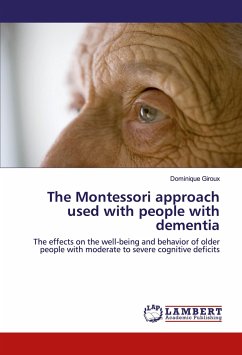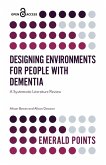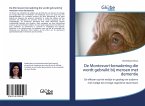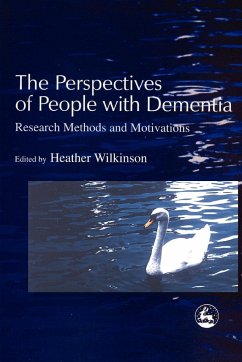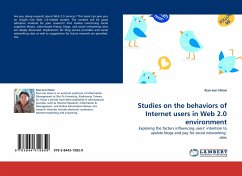Choosing activities that meet the needs of people with moderate to severe dementia in long-term care facilities is a major concern for stakeholders. The constant increase in this clientele is of great concern to those who are trying to find activities that meet their needs for self-esteem and accomplishment while being adapted to their abilities. The activities created by Maria Montessori, although originally intended for children, seem adapted to this clientele while meeting their needs. A study was conducted to evaluate the effect of these activities on participants compared to regular activities in the community. The results show that Montessori activities have a significant effect on participants' affect (state of mind) and participation in the activity. Thus, these results support the hypothesis that activities corresponding to the needs and capacities of the elderly person with dementia will have positive effects observable through the affect, the behaviors and the participation in the activity of this person.

